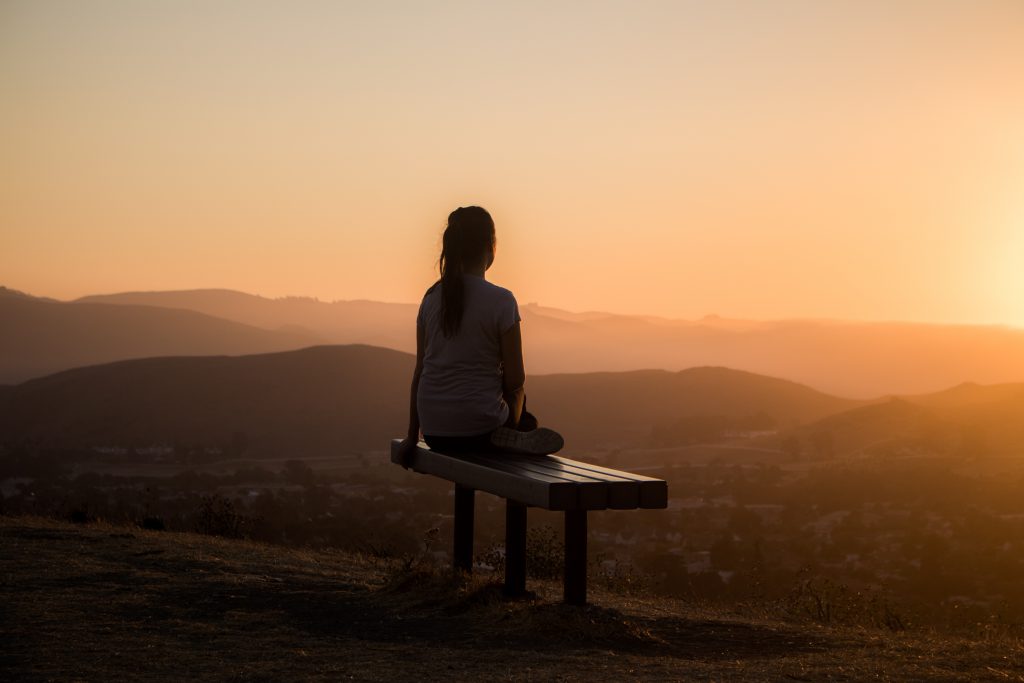When it comes to meditation, one of the most frequent question, if not the main one, is, “What is meditation?”
Over a few years, meditation became more than a practice. It became an industry. And just like yoga, things got complex as everybody’s trying to label their own way to practice. Zen meditation, vipassana meditation, transcendental meditation, Vedic meditation, mindfulness meditation, Christian meditation, kundalini meditation, chakra meditation, body scan meditation, loving kindness meditation. It’s no wonder why people don’t know where to start and wonder: what is meditation?
Let’s try to clarify all that and see if we can offer a definition of meditation.
What is meditation? A mainstream definition
If you look for a definition online and explore the results, you will soon realise that meditation is often associated with a tool used to control your mind. It is extremely tempting to imagine our mind as a muscle that we can train in order to learn how to focus more. And this idea perfectly matches our era where most people believe that achieving more and feeling more are ways to measure somebody’s success in life. Even most osteopaths treat their patients like muppets. If you pay attention to the words used, you will see how meditation is presented as a way to achieve or acquire something.
In this article, “Meditation is a precise technique for resting the mind and attaining a state of consciousness”. Here, the author says that “Meditation is a mental exercise that involves relaxation, focus, and awareness. Meditation is to the mind what physical exercise is to the body”. This website says that “Meditation is an ancient wellness practice that focuses on training awareness, attention, and compassion”.
I think that the word “mindfulness” helped to develop this idea. And by the way, if you read the articles quoted above, you will see how they subtly move from a definition of meditation to a practice of mindfulness meditation, even though they are, at least in my opinion, two things going in the opposite direction. And this article seems to share my opinion.
Meditating this way won’t take you anywhere
From birth, we’ve been taught how to think, how to use bodies to achieve things, etc. Year after year, we’ve been trained on how to react to life, how to take action. Being an entrepreneur is considered as a great quality these days. Yoga is seen as a way to become more balanced, stronger. We are in a culture that advocates for the idea of doing more. And mainstream meditation, especially mindfulness, follows that path.
It helps you to achieve more, to be more focused, to reach a different state.
But think about it: is this not the reason why you are looking for meditation on Google? How will your anxiety calm down if your “meditation” follows the exact same principles responsible for your anxiety? How wounded will that leave you in the end?
I really believe that it is possible to learn how to be more focused and to train your mind. This might be a great way to relax a bit. And mindfulness is a great tool to achieve that. But it won’t take you very far. Focusing on your breathing or witnessing your thoughts and emotions can be a lovely practice that can help many people. But it is only one of the first steps on the way to meditation.
What is meditation? Doing no thing
Have you ever reached a situation in your life when you became exhausted from trying to control things? A situation where, for a short while, your ego was so exhausted that you couldn’t do anything anymore besides letting things be.

Well, I believe that’s where meditation starts. Meditation is not a practice to achieve something. What is meditation? Meditation is the “practice” of doing NO THING.
And this is so foreign to us. The main thing I hear when I talk about meditation as a way to do no thing, is that nothing will happen. But is that true though? Think about how many things happen in your life without you having to step in and try to find solutions. The movements of the planets, the beat of your heart, the ins and outs of your breath. Life happens when you do not try to interfere. Life happens when you get back. In other words, doing no thing allows more things to happen.
Most of my clients understand that definition
Most of the people I work with are people who’ve experienced moments in their lives where they’ve been able to take a step back and let life occur. They usually feel less stressed out, have less pain or less anxiety due to that practice. But they do not meditate with a goal in mind. And that’s why I do not necessarily recommend to meditate everyday.
They understand that meditation is not a means. Meditation only is meditation. Nothing can be added to it without adding to the risk of making it impure.
If you’ve ever experienced that sensation and know that’s what you need, we can work together online. It is a very “embodied” meditation as I really don’t see how exercise could be for the body and meditation for the mind. I will support you for you to experience the Stillness that lies within all of us. It won’t have to be transcendental, vipassana, Christian, Buddhist, or mindful. After all, sitting down in silence doesn’t have to be anything else than… sitting down in silence.

About Jules Rampal
Meditation teacher and osteopathI am an online meditation teacher and an osteopath currently working in Gordes, France. My courses are for people who want to learn meditation with guided sessions, and for therapists who want to delve into the way they feel and the knowledge they can gather for their clients.
Book an osteopathic session here
Learn more about me here
Leave a Reply